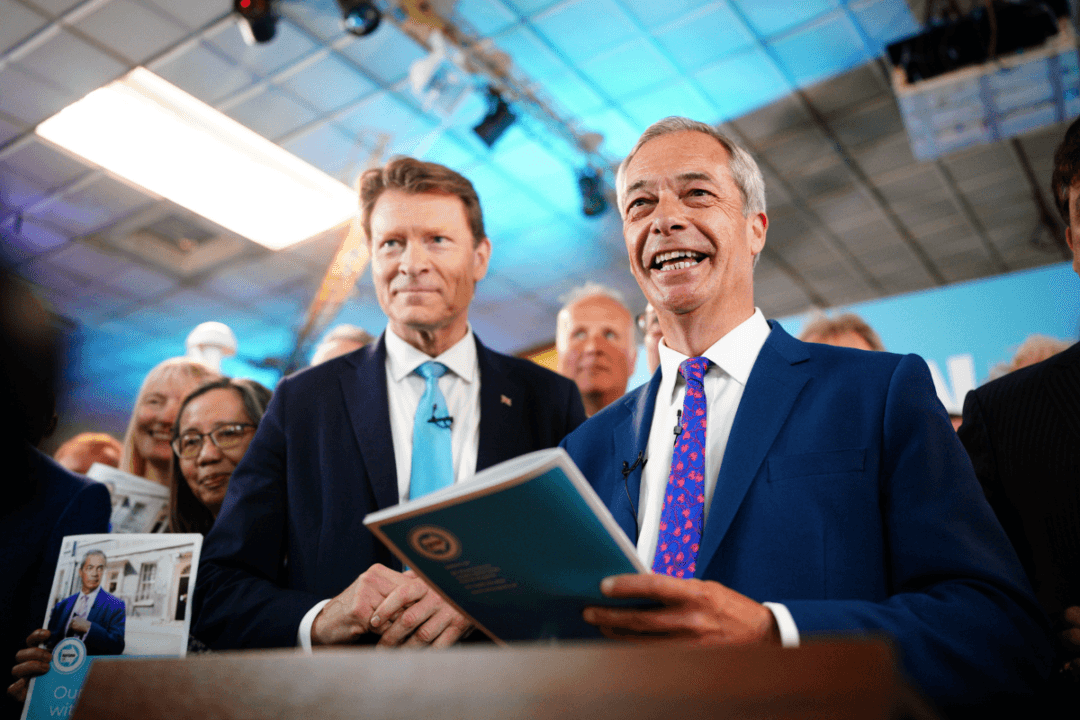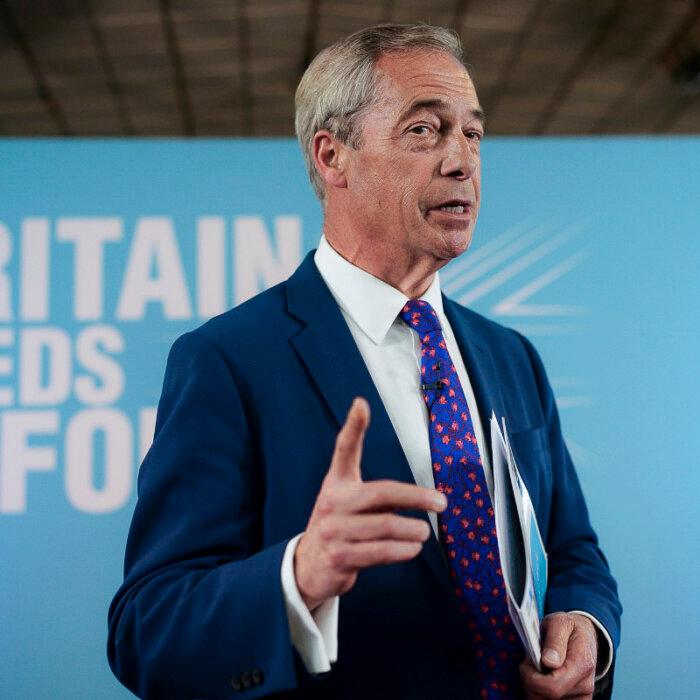Reform UK could win around 18 seats, including those targeted by Nigel Farage, Richard Tice and former Conservative MP Lee Anderson, according to an opinion poll by Electoral Calculus and Find Out Now.
The pollsters said, “Labour’s lead is around 20 percent which is considerably higher than the 13 percent lead which Labour had under Tony Blair in 1997, when the Labour majority was 179.”
They added, “The Conservatives are set to lose most of their seats, and will likely have fewer seats than the Liberal Democrats, who will become the official Opposition.”
The poll also predicts the Greens would increase their MPs from one to four.
It says the Greens would retain Brighton Pavilion, oust Labour’s Thangam Debonnaire in Bristol Central and would win North Herefordshire and Waveney Valley from the Tories.
Corbyn Tipped To Win As Independent
Among the “hyper-local” predictions Electoral Calculus and Find Out Now came up with, was picking former Labour Leader Jeremy Corbyn to win Islington North as an independent.Mr. Corbyn, 75, was thrown out of the party he once led last month and is hoping to defeat Praful Nargund, an entrepreneur in the fertility industry, who was chosen as Labour’s candidate.

The poll predicts 22 members of Rishi Sunak’s Cabinet would lose their seats next week, including the prime minister himself.
If Mr. Sunak—who had a majority of 27,210 in Richmond and Northallerton at the last election—were to lose his seat he would become the first prime minister to do so.
Other Cabinet ministers tipped to lose their seats to Labour are Deputy Prime Minister Oliver Dowden, Equalities Minister Kemi Badenoch, Defence Secretary Grant Shapps and Leader of the Commons, Penny Mordaunt.
The poll predicts Chancellor Jeremy Hunt and Justice Secretary Alex Chalk would lose to the Liberal Democrats and Reform UK would defeat Veterans’ Minister Johnny Mercer in Plymouth Moor View.
Hague Warns of ‘Supermajority’ Consequences
Former Conservative Party Leader William Hague, in a column in The Times, said if Labour won 462 seats, as some polls have predicted they would, “no clause of any bill introduced by a minister would ever come close to being defeated. It would be parliamentary democracy in its weakest form since the 1930s.”Mr. Hague, who took over the leadership the Conservative Party in the wake of Sir Tony Blair’s landslide victory of May 1997, said Labour’s majority of 179 made it almost impossible to keep them in check.
“It was fun at times, but it was not effective opposition. We were like the Home Guard in 1940, able to practise marching up and down but in no way able to disrupt the German war effort,” Mr. Hague recalled.
She wrote, “The Conservative argument that a Labour supermajority would lead to a sudden dramatic loss in the effectiveness of parliamentary scrutiny is untrue.”
“This is first because the rules of the House of Commons have always provided significant advantages to the party of government—being one of the most executive-dominated parliaments in the world,” added Ms. White.







